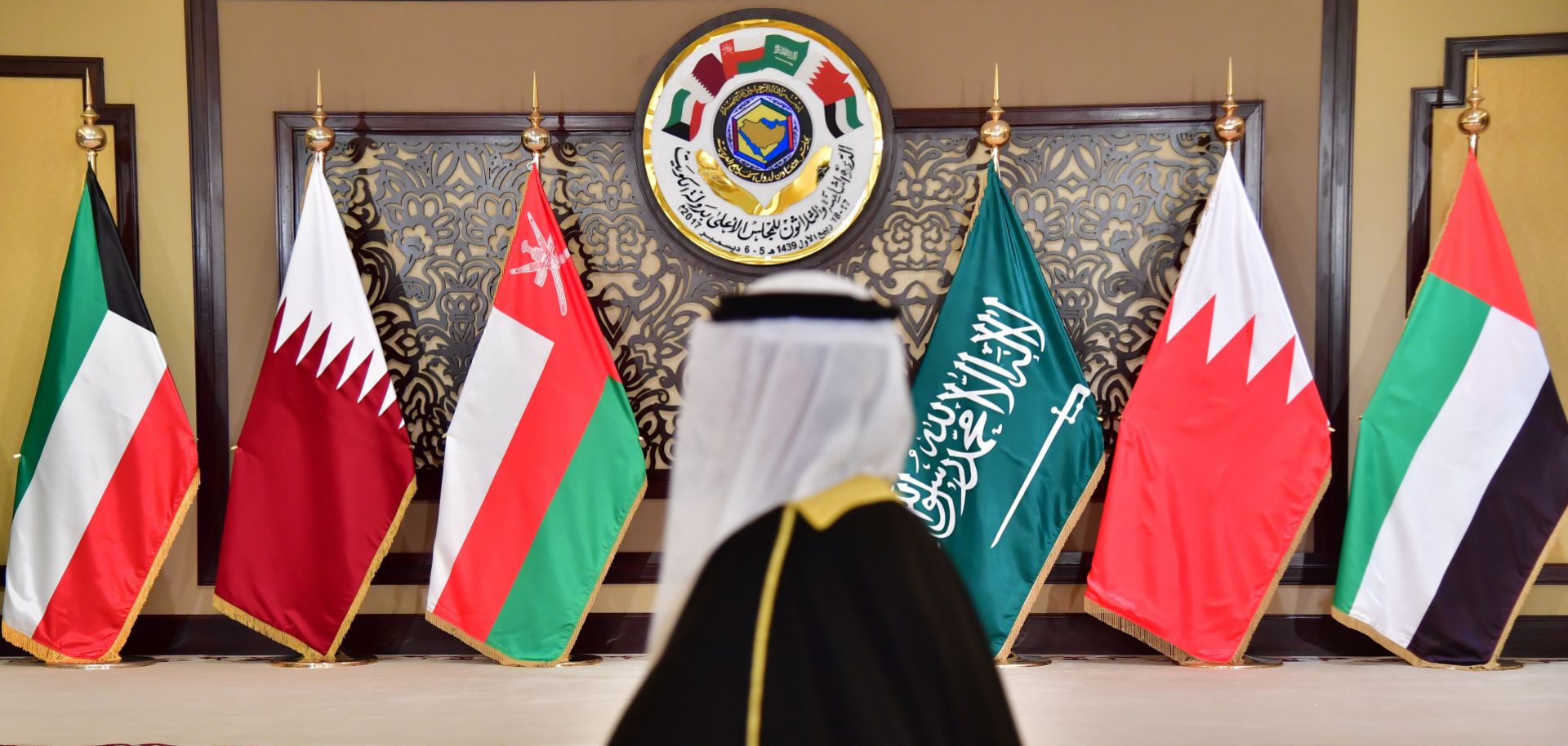ASSESSMENTS
The Gulf's Smaller States Use Their Wiles to Fend Off Bigger Rivals
Nov 13, 2018 | 10:00 GMT

A man walks past the flags of the countries attending the Gulf Cooperation Council summit at Bayan Palace in Kuwait City on Dec. 5, 2017. Kuwait and two other smaller members of the GCC, Qatar and Oman, are continuing to carve out a niche for themselves.
(GIUSEPPE CACACE/AFP/Getty Images)
Highlights
- Saudi Arabia, Bahrain and the United Arab Emirates will continue using their close relationship with the United States to try to reorder the policies of neighbors Kuwait, Qatar and Oman.
- In resisting this strategy, the three small Gulf states will strive to demonstrate their own value to the United States.
- The United States will back differing alliances within the GCC to achieve its regional strategy, while working to prevent a formal breakup of the council.
Subscribe Now
SubscribeAlready have an account?
